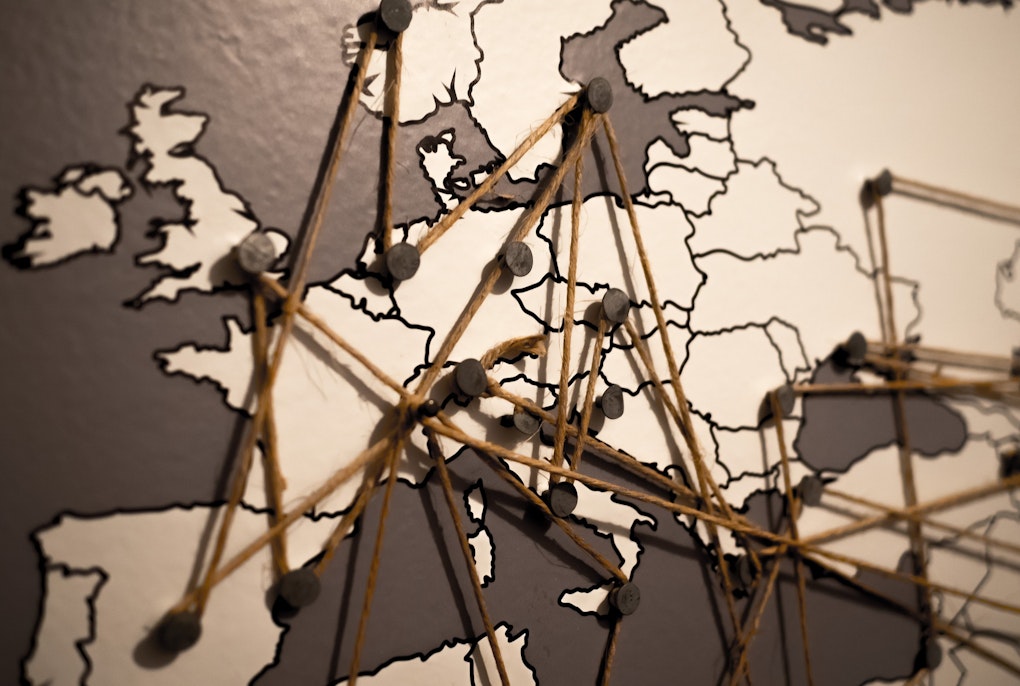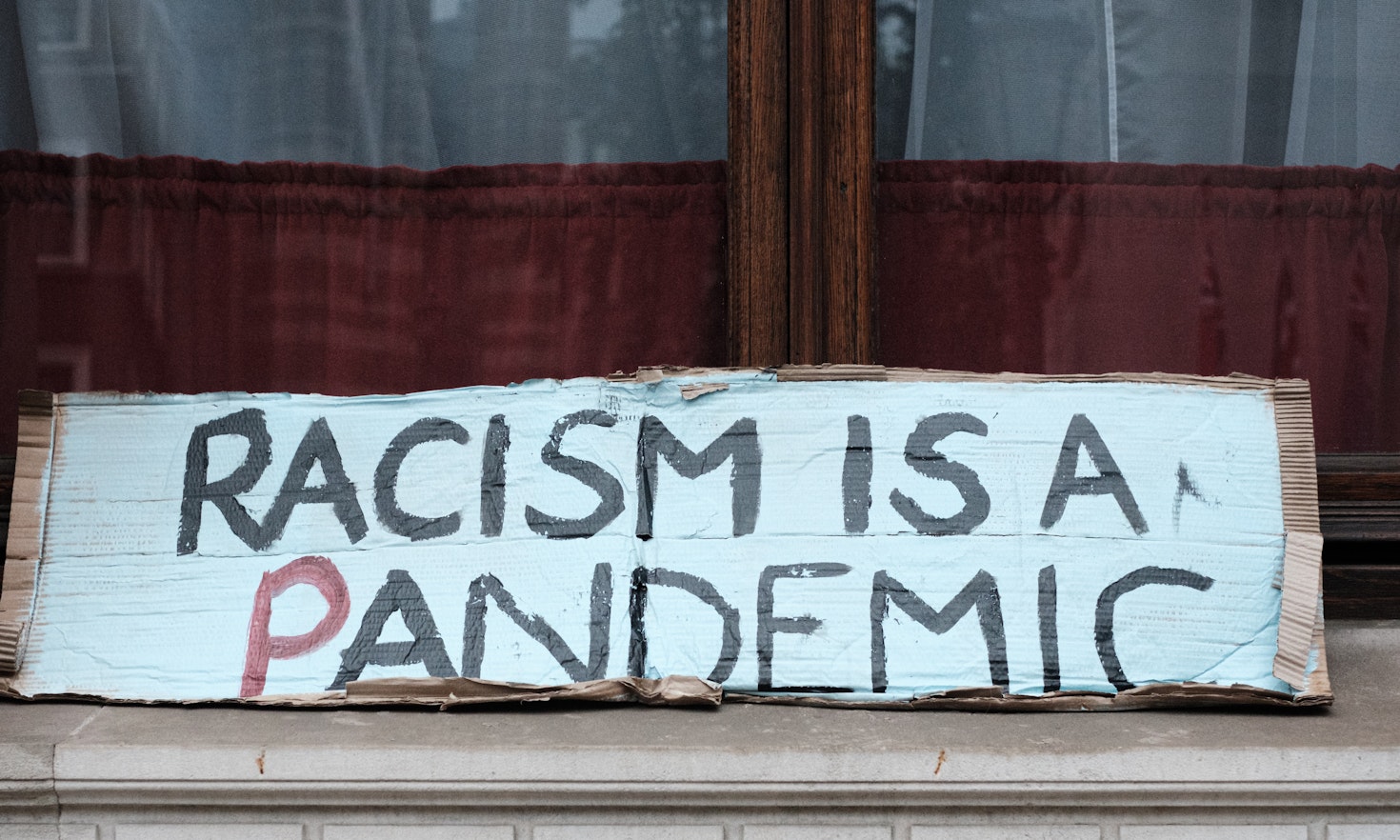
The EU and Current Crises: 27 Visions from the Student Generation
 Theresia Morandell
Theresia Morandell
The Covid-19 pandemic has exacerbated the threat of discrimination and the ongoing issue of the lack of protection towards marginalised groups.
The Roma, the largest minority group in Europe, are exposed to the virus and the health, economic and social risks more than other groups of society. Those risks are connected to the toxic mix of persistent structural discrimination and the economic, social and health related consequences of the ongoing pandemic. In this context, local individuals have emerged as crucial in managing the crises faced by this minority group.
In Bulgaria, despite no evidence of COVID-19 positive test results, the government has imposed particular measures, including roadblocks and police checkpoints, on several Romani neighborhoods. In North Macedonia, nine Romani musicians travelling in a convoy of 200 people were stopped at the border and made to quarantine while returning home from Austria. Since the start of the pandemic, they have been the first people to be quarantined on their return to the country, and because of their Romani ethnicity the only ones of the group to be held. In Italy, despite a government decree being issued in May 2020 which suspended evictions, Roma communities continued to face expulsions from their homes. Antigypsyism - the term describing the structural forms of racism deeply rooted and accepted in society - remains the most persistent and widely accepted form of racial discrimination in Europe today. Two major areas, in which antigypsyism is prevalent, are housing and health. The Covid-19 crisis, significantly related to those two policy areas, is accelerating the worsening trend of already catastrophic figures of structural discrimination against the Roma minority.
In Shuto Orizari, in the suburbs of Skopje, North Macedonia, lies one of the few Roma-led municipalities in Europe, where many families share small one-bedroom houses, and many do not have access to water. Likewise, Italian Roma settlements, according to an EU Fundamental Rights Agency report, have one of the highest rates of people sharing one room in Europe. Unsurprisingly, the legal manager of the European Roma Rights Centre defines the housing situation of Roma as “the worst” in Europe. It is not much of a surprise that during a pandemic, when there is an urgent need to have access to water to protect communities from the virus, communities living under the aforementioned conditions are exposed to an increased risk of viral infection. Under these circumstances, social distancing, adequate hygiene and homeschooling are nothing more than utopia. This is only the tip of the iceberg and has influenced the alarming situation of the Roma during the ongoing pandemic: For years Europe´s largest minority has been living under peculiar conditions, mostly on the outskirts of cities, in substandard and illegal neighborhoods – upon which local governments have turned their back. Local Roma rights groups in Slovakia reported that the measures taken against the virus, which have involved isolating Roma settlements and sending in army medics to carry out testing, has fuelled stigmatisations and fear among both the Roma and non-Roma population.
Data from the first wave of the pandemic shows that people of an ethnic minority are up to twice as likely to die from Covid-19. A Gallup survey from 2017 found that doctors are most likely to discriminate against Roma in Bulgaria, Italy, and Romania. In the current crisis, with health systems overwhelmed in these countries, Roma are consequently at an even greater risk of mistreatment. During the pandemic, discriminatory medical treatment has been reported for instance in Slovakia, where mandatory testing has only been introduced for Roma communities. “In the case of health, Corona has opened a Pandora’s box”, states a project manager of a Skopje-based Roma NGO. Even in Shuto Orizari, a Romani speaking gynecologist has been lacking for a significant amount of time which further exposes Romani women to serious health threats, and this was well before the pandemic. Discrimination faced by the Roma people in terms of healthcare is an ongoing issue to which public health experts, as well as the scientific community, respond with silence.
Reports show that coronavirus-related activism has been a matter of both compensation for government failure, as well as a form of partnership with government intervention. In North Macedonia for instance, NGO´s were often the only hope for the Romani settlements who provided vouchers for Romani families to buy food, or distributed dishes directly to families. Also, in other countries, such as the Czech Republic, civil society groups not only organised and distributed face masks to the local Roma community, they also help with medicine and provide access to water for the Romani neighborhoods. During the pandemic, local governments passed on most of their tasks and responsibilities to civil society, without providing these groups or individuals with any financial or technical support. Multiple examples show that local welfare, in the form of the presence of active advocacy groups who support the rights of the poor, have clearly made a difference.
The vaccination is considered to be the solution which will bring us back to normality. This, however, is only one side of the story and does not reflect the situation of all members of society. A survey carried out by the Royal Society for Public Health states that people with an ethnic minority background are less likely to get the Coronavirus vaccine, even though they are among the ones most exposed to the pandemic and its consequences. The European Public Health Alliance therefore argues that minorities, such as the Roma, should be prioritised in the national vaccine strategies. The European Commission also identifies “more disadvantaged socio-economic groups”, as a priority group to be considered. Despite an increasing political consensus in the need of prioritising certain groups in the strategies, the actions so far, remain limited.
The vaccination, however, would only be a short-term solution. The EU recovery plan presents the necessity as well as the opportunity to consider and to improve the situation of marginalised communities, such as the Roma, for the medium- and long-term. Monitoring and assessing the socio-economic impact of the pandemic on the Roma community during the pandemic, together with civil society actors, has to be taken into account and made a priority. This requires the collection of data to ensure viable, effective post-pandemic policy design. Additionally, there is a need to further strengthen the role of local actors, such as NGO´s, through funding. The European Commission has to invest more in monitoring incidents of discrimination and racist violence at national level. There is also a need for a long-term strategy and clear commitments in addressing the roots of antigypsyism, to close this Pandora’s box.

This content is licensed under a Creative Commons Attribution 4.0 International license.